There’s nothing quite like the feeling of finding a flea in your home. Whether it’s in your bed, on your couch, or even in the carpet, fleas can make themselves right at home – and they’re not easy to get rid of. So how do these pesky pests end up in our homes in the first place? Let’s take a look at how fleas get in the house, and what we can do to prevent them from making themselves comfortable.
What Do Fleas Look Like?
Fleas are small, dark and wingless insects. They measure between 1/12 and 1/6 of an inch in length and have a hard shell-like outer layer called an exoskeleton. Their bodies are flattened from side to side, giving them a low profile which allows them to move quickly through fur or feathers. Fleas also have long legs that enable them to jump large distances.
Fleas have piercing mouthparts that they use to feed on their hosts’ blood. Adult fleas range in color from reddish-brown to black depending on what they last fed on. Flea larvae look like small white worms and often live in carpets, upholstery and other protected areas.
Fleas are a common household pest and can be found in the fur of pets and wild animals. They can also be brought into the home on clothing or in luggage after traveling to infected areas. Fleas reproduce quickly and their eggs can remain dormant for weeks or even months before hatching. [1]
How Dangerous Are Fleas?
Fleas can be dangerous pests to have in your home. Not only are flea bites itchy and annoying, but fleas can also transmit serious diseases like the bubonic plague, murine typhus, and tungiasis. Fleas can also cause anemia in pets due to their frequent bloodsucking. In order for a pet to become infected with these diseases, they must first be bitten by an infected flea. Fortunately, there are steps you can take to prevent a flea infestation in your home and protect your family and pets from potential harm.
How Do Fleas Get In Your House?
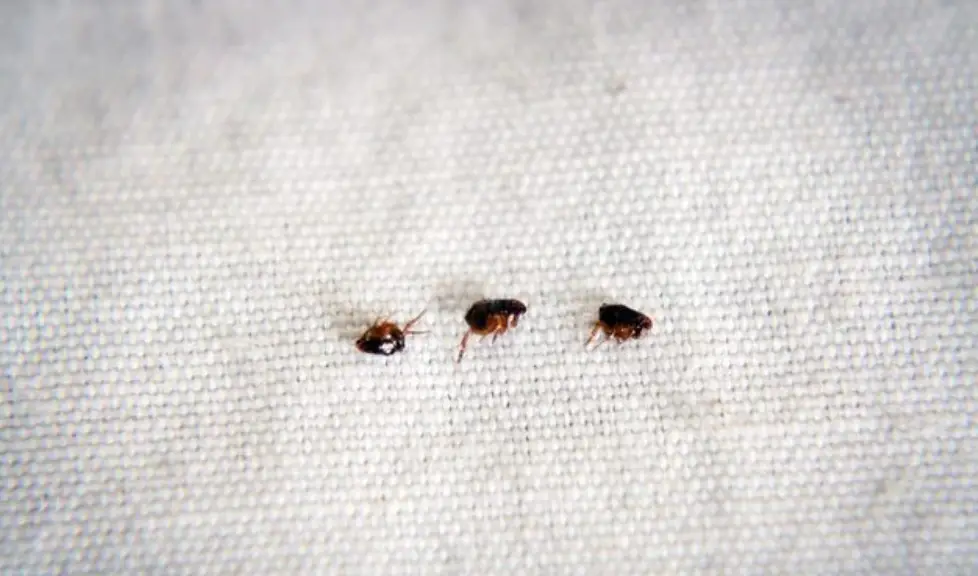
You Bring Them In On Your Clothes or Pets
Fleas like to spend time on the host they feed off of, which is usually an animal. Animals can bring fleas into your home without you even knowing it. If you have pets, check them regularly for fleas and take preventive measures to keep their fur free of these pests. Additionally, if you’ve been in contact with other animals – such as visiting a friend’s pet or going camping – it’s possible that some fleas could hitch a ride on your clothes and end up in your house.
Birds or Wild Animals Bring Them In
Your home may be home to birds or wild animals that live nearby, such as mice or squirrels. All of these creatures can bring in fleas from outside, so it’s important to make sure these animals are not entering your home. Inspect the exterior of your house for any cracks and crevices, and repair them as soon as you can to keep fleas out.
Outside Contaminants
Even if you don’t have pets or wild animals in or around your home, fleas can still find their way inside through outside contaminants. This could include furniture, bedding, clothing, linens, and other items that may come into contact with flea-infested areas like woods or grassy patches.
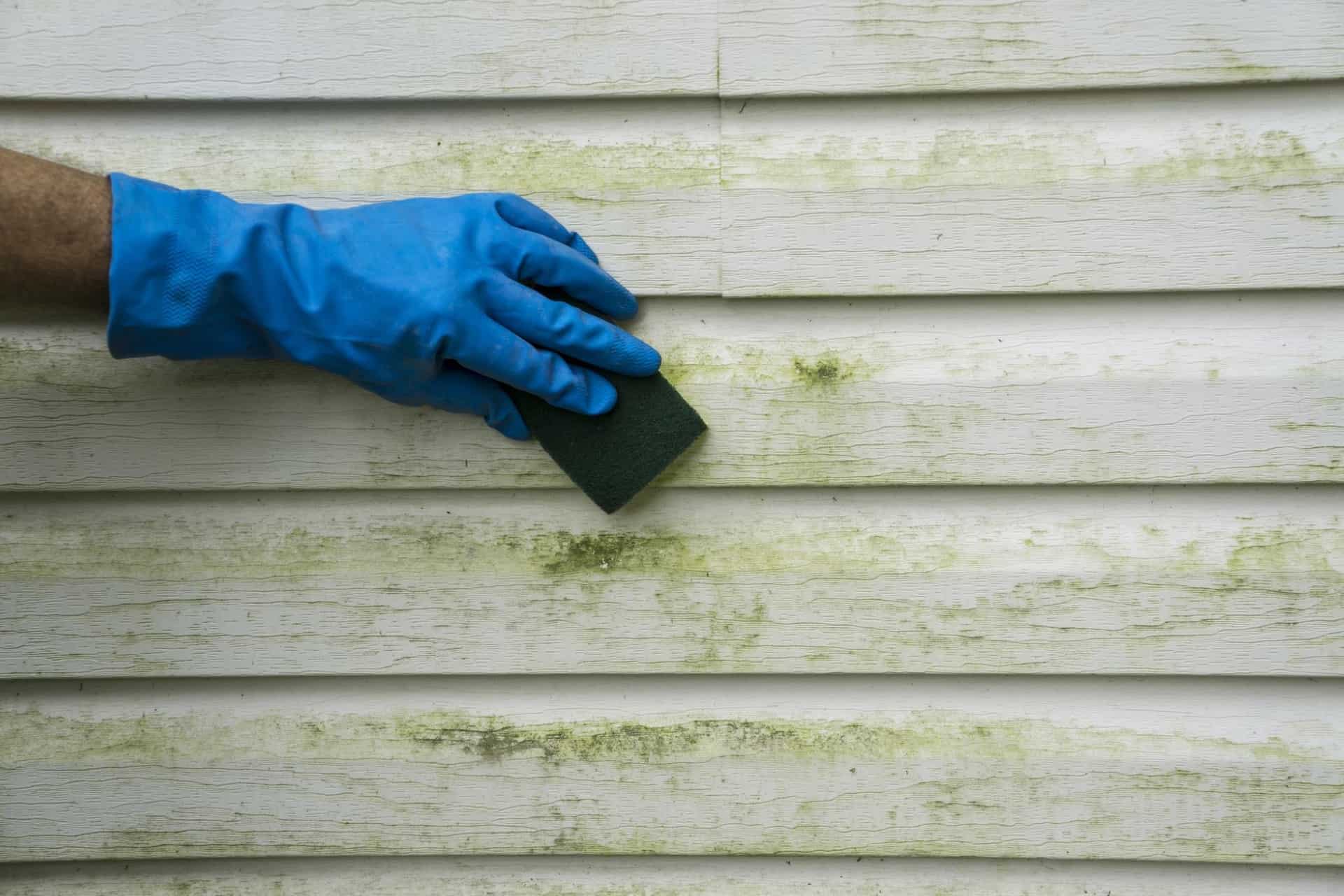
Before bringing anything outdoors into your home, inspect it carefully for signs of fleas – such as eggs or adult bugs – and shake out items to remove any possible infestations before bringing them in. [2]
An Old Piece Of Furniture
Another way fleas can sneak into your home is through an old piece of furniture. Fleas may have made a home in the cushioning or crevices of the piece, and when you bring it inside, they could come with it.
Cracks In Your Floors Or Around Windows and Doors
Fleas can also enter your home through cracks in your floors, as well as around windows and doors. Make sure to inspect these areas for any cracks or openings, and seal them up if necessary. This will help keep fleas out of your home.
Mice Or Other Rodents In Your House
Mice and other rodents are known for carrying fleas, so if you have an infestation of these pests in your home, it’s likely that they could also be bringing in fleas. Be sure to get rid of any rodent infestations as quickly as possible to prevent fleas from entering your home.
Rugs Or Carpets
Finally, fleas may also make their way into your home through rugs or carpets. Before bringing any of these items inside, inspect them for signs of fleas and vacuum them thoroughly to remove any possible infestations. [3]
How Long Will Fleas Live For?
Fleas are able to survive for extended periods of time, even in unfavorable conditions. Adult fleas can live for up to 100 days and sometimes longer. Eggs laid by a female flea can remain dormant for as long as two years before hatching into larvae. Flea larvae feed on organic debris and the blood from adult fleas, which helps them grow and develop. After several weeks, the larvae will spin themselves into a cocoon, where they mature into adults.
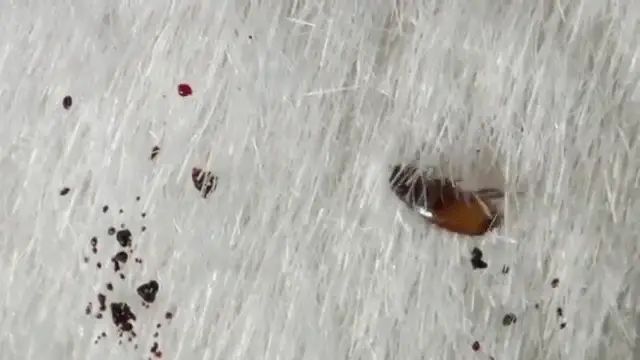
During this period, they are most vulnerable to environmental changes such as temperature or humidity fluctuations. Once matured, adult fleas can live for up to six months under optimal conditions.
The life cycle of a flea is dependent upon its environment and the availability of food sources; without a blood meal, fleas will not survive. Therefore, eliminating the flea population in your home starts with identifying and removing all sources of food for them.
Can You Get Fleas If You Don’t Have Pets?
Yes, you can get fleas even if you don’t have pets. Fleas are incredibly resilient and can easily hitch a ride into your home on clothing, shoes, and other personal items. They can also come in from outside sources such as wild animals or other people’s pets.
In addition to this, flea larvae can survive for long periods of time without a host—making it possible for them to live in fabrics or carpets if these areas have not been recently cleaned or vacuumed. Therefore, it is important to regularly clean and vacuum your home if you want to discourage fleas from making themselves comfortable in your house.
How Long Do Fleas Live In Your House?
Fleas can live in your home for days, weeks, or even months. They can survive for more than 100 days without a blood meal from an animal host. Adult fleas are very hardy and many of them can survive up to one year in optimal conditions. In fact, some species of flea have been documented living up to 18 months without a host.
The female flea lays hundreds of eggs during her lifetime which quickly develop into larvae that hatch within two weeks and continue the cycle of infestation unless they are eradicated by pest control measures. Therefore, if you have fleas in your house it is important to take prompt action as they can quickly become an infestation problem if not dealt with promptly. [4]
What To Do If You Have Fleas In Your House?
Once you’ve identified that there are fleas in your house, it’s important to take action quickly. While some people may try to deal with the situation on their own, enlisting the help of a pest control expert is often the best course of action.
The first step in addressing an infestation is to thoroughly clean and vacuum your home. Vacuuming will remove any adult fleas and any eggs they may have laid. You should also wash all bedding, curtains, rugs, and pet items in hot water as this can kill both adult fleas and their larvae.
Additionally, use an appropriate insecticide to treat furniture, carpets and other areas where fleas may be hiding.
If the infestation has become severe, it may be necessary to contact a professional pest control service. These services can assess the severity of the infestation and provide advice on the most effective methods for exterminating fleas from your home. This may include chemical treatments or other specialized techniques.
Finally, once you have eliminated all fleas from your house, make sure to keep up with regular cleaning and vacuuming as this will help prevent a future infestation.
How Do Pest Control Professionals Kill Fleas?
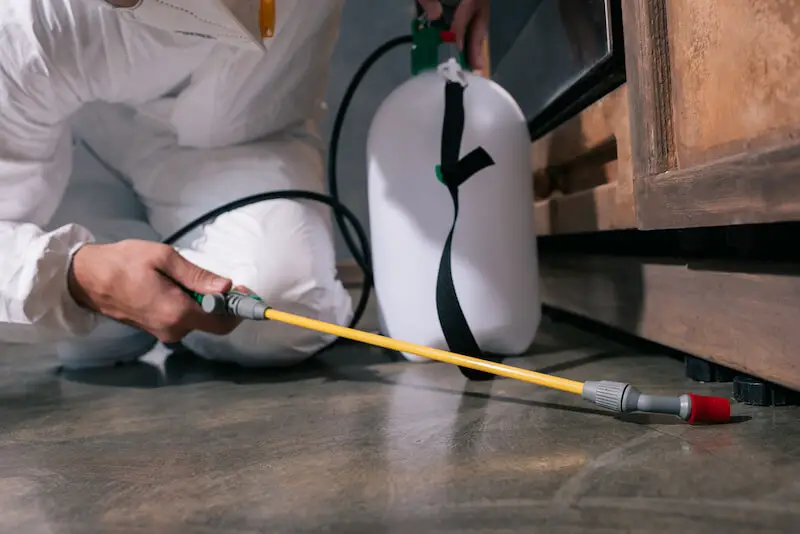
Pest control professionals have a variety of techniques to kill fleas in a home. They may use insecticides, powders and sprays that are applied directly to the areas where fleas are found. This can include carpets, furniture, pet beds and other surfaces. In addition to chemical treatments, pest control companies will often use fogging or thermal treatments to kill fleas and their eggs.
Fogging releases liquid insecticide into the air to eliminate fleas while thermal treatments involve using heat to kill them. Vacuuming is also an important step in eliminating fleas as it removes adult fleas, larvae and eggs from carpets and other surfaces.
Pest control professionals are well-equipped with the knowledge and tools needed to efficiently and effectively eliminate a flea infestation. Taking the time to hire a licensed pest control professional can save you from having to deal with the hassle and expense of a flea infestation in your home. [5]
FAQ
How do fleas get in the house without pets?
Fleas can get in the house even if you do not have pets. This is because fleas are able to jump very high and hang onto clothing, skin and fur. As people come into the house, they may unknowingly bring fleas in with them on their clothes or bodies. They can also be brought in by wild animals such as mice or birds that find their way into your home. Finally, fleas can sometimes be found in secondhand furniture, carpets, mattresses or other items that previously had contact with an animal that was infested with fleas.
To prevent this from happening, it is important to vacuum regularly, wash bedding frequently and inspect any used furniture before bringing it inside your home. Furthermore, it is important to keep the area around your home free of debris, as this can provide a habitat for fleas and other pests.
How do I know if my house has fleas?
If you suspect that your home may have fleas, there are several warning signs to look out for. These include seeing small black specks moving around on carpets or furniture, finding small bite marks on skin (commonly found on ankles and lower legs) or noticing pets scratching excessively.
Furthermore, you may also notice an increase in flea droppings in heavily trafficked areas such as living rooms or bedrooms. If any of these signs are present, it is likely that your home has become infested with fleas and you should contact a professional pest control company to help eliminate them.
How long does it take to get rid of fleas in the house?
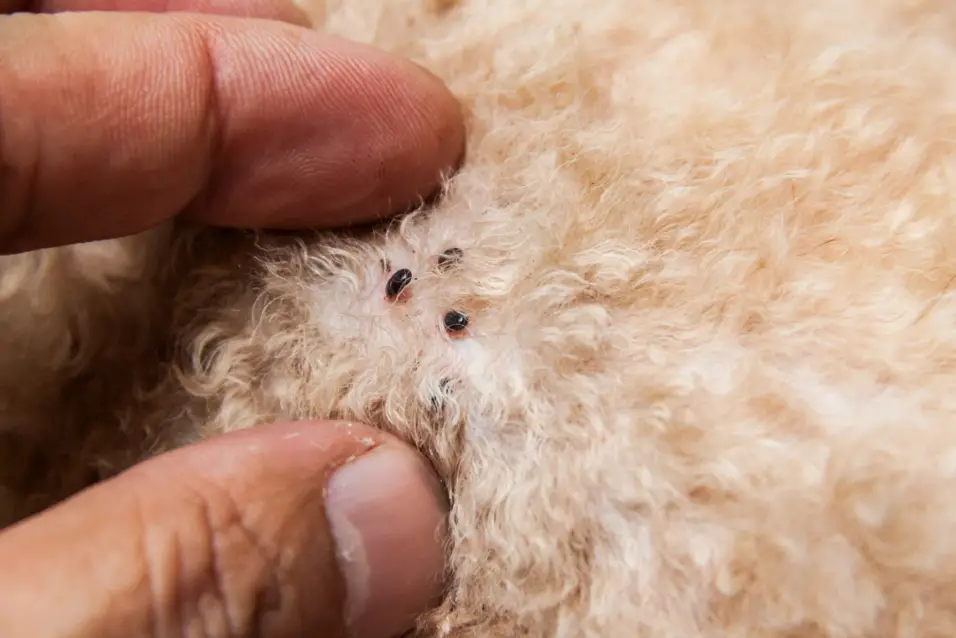
The amount of time it takes to get rid of fleas in the house will depend on several factors. These include the size of the infestation, how long the fleas have been present and the method used to eliminate them. Generally speaking, it can take anywhere from a few weeks to several months to completely eliminate all fleas in the home. It is important that you follow all recommended steps for eradication and continue vacuuming and cleaning frequently until there are no signs of active flea infestation.
Will fleas go away on their own?
No, unfortunately fleas will not go away on their own. Fleas are notorious for reproducing quickly and in large numbers, so it is important to take action as soon as you notice fleas in your home. If left untreated, the infestation can quickly become out of control and cause widespread health issues for both humans and pets alike.
The best way to get rid of fleas is to seek professional help from a pest control specialist who can assess the situation and advise you on the best course of action.
They will be able to recommend treatments tailored specifically to your individual needs, such as fumigation or insecticides that target only adult fleas. Additionally, they can provide advice on how to prevent future infestations by eliminating potential entryways and using preventative measures.
Can fleas live in your bed?
Yes, fleas can live in your bed. They often make their way into beds when a pet sleeps there or by jumping onto the bed from nearby furniture. Flea eggs and larvae can also become trapped in bedding and mattresses, where they will remain until they hatch into adult fleas.
To prevent this from happening, it is important to keep your house clean and vacuum regularly to remove any potential hosts for fleas.
Additionally, washing sheets and blankets at least once a week may help reduce the risk of a flea infestation. Professional pest control treatment may also be necessary depending on the severity of the infestation.
Do fleas go away in winter?
In many cases, fleas will become less prevalent in the winter months. This is due to colder temperatures and reduced humidity which can make it harder for them to survive. However, it does not mean that fleas will completely go away during this time. Flea eggs can remain viable even when conditions are not favorable, so there can still be a risk of infestation if preventative measures are not put into place.
Do fleas jump?
Yes, fleas have the ability to jump up to several inches, which is how they travel from host to host.
They can also use their powerful back legs to propel them through the air and onto a potential new host. This makes it even more important to take preventative measures such as regular vacuuming and washing of bedding in order to reduce the risk of flea infestations. In addition to jumping, fleas can also spread through direct contact with another host or animal that may be carrying the fleas.
Useful Video: How to Get Rid of Fleas Guaranteed (4 Easy Steps)
Conclusion
The best way to prevent fleas from getting into your home is to practice vigilant inspection and effective pest control methods. Vacuuming regularly, using sprays or powders around the perimeter of your house and in known hot spots, and regularly grooming your pets are all essential steps in keeping these unwanted visitors away. Additionally, you should use pet-specific products such as flea collars, spot treatments, and shampoos which can help provide added protection against fleas. By following these simple tips and being mindful of signs of a potential infestation, you can reduce the chances of having an unwelcome flea issue in your home.
References
- https://www.preventivepestaz.com/blog/how-do-you-get-fleas-in-your-house
- https://www.lloydpest.com/blog/how-did-i-get-fleas-in-my-house/
- https://www.bestpickreports.com/blog/post/signs-of-fleas-and-how-they-get-indoors/
- https://www.abchomeandcommercial.com/blog/fleas-in-house-no-pets/
- https://www.countryliving.com/uk/homes-interiors/interiors/a33630251/how-get-rid-fleas/














Leave a Reply